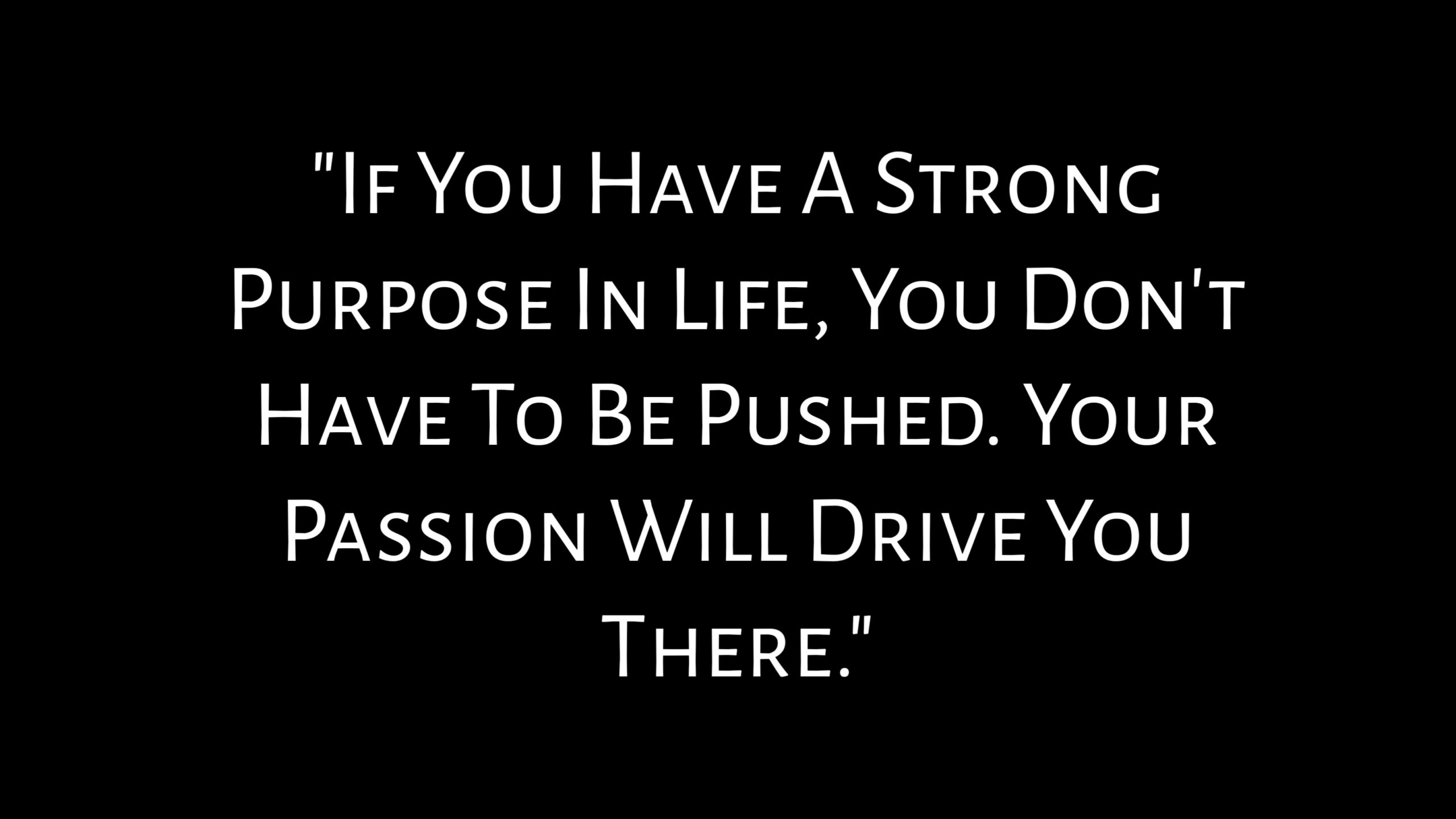 There’s no doubt that entrepreneurs are passionate creatures, brimming with enthusiasm for their ideas, but turning that passion into a healthy bottom line is a different story altogether. Julie Perkins outlines why passion has to become purpose to create long-lasting success and growth.
There’s no doubt that entrepreneurs are passionate creatures, brimming with enthusiasm for their ideas, but turning that passion into a healthy bottom line is a different story altogether. Julie Perkins outlines why passion has to become purpose to create long-lasting success and growth.
For most questions in the modern world, an answer can be found on Google. From ‘why is the sky blue?’ (blue light is more easily scattered) to ‘are chocolate bars getting smaller?’ (regrettably, yes), the answers are out there in fairly simple form. Ask what makes a great entrepreneur, however, and you will find answers aplenty.
A quick internet surf reveals that most entrepreneurs are considered visionaries, able to spot gaps in the market that no one else has seen, they are results driven, adaptable and open to feedback, they learn fast, are decisive, must be a compelling storyteller and have just the right balance of humility and confidence knowing both their strengths and weaknesses.
As a new company founder or young visionary, that’s quite a list to take on board. Starting out you have no idea yet who you are or how you can succeed. It’s a hard place to begin. However, begin you must, but how? Some would say just by getting on with it – after all according to Forbes.com successful entrepreneurs ‘don’t noodle, they do’ – however, ask most new entrepreneurs and they will answer by having passion.
 There’s no doubt of course that passion is a vital component, but old hands like me also know that to achieve lasting success there’s a little more to it than that, so to the list above, let’s add the ability to turn passion into purpose.
There’s no doubt of course that passion is a vital component, but old hands like me also know that to achieve lasting success there’s a little more to it than that, so to the list above, let’s add the ability to turn passion into purpose.
When I first start work with an entrepreneur and ask them to tell me about their products and service, I am not after a business pitch per se because no amount of ‘I believe the world needs my product’ is going to cut ice with investors, but I do agree with Steve Jobs that ‘the most important person in the world is the storyteller. [They] set the vision, values and agenda of an entire generation that is to come’. It is how you tell that story and translate that personal passionate essence into organisational purpose that matters.
Passion is, of course, a great starting point, even if it is a bit frustrated and stuck, believing in the future but not sure how to get there. All my life I was told that I had passion and with no other feedback, I took it as a compliment. But passion – like all superpowers – needs to be tamed. It’s personal and often emotional and it’s easy to get carried away; it’s certainly the beginning of beliefs and a determination to make things happen – no one chooses to do it because they’re a bit bored – but passion can be difficult to let go of and for others to understand.
Purpose means that everyone from investors, to colleagues and consumers will understand who you are and what you are trying to achieve. Knowing your core reason for being leads to trust and sustainability. A clear purpose leads to clarity, direction and inevitably to customers, sales and growth. It is the difference between a hobby (passion) and a business (purpose), a short story or a never-ending story, as Harvard Business School says, ‘entrepreneurship is a long-term endeavour… as long as you possess the entrepreneurial spirit, you’ll be able to seize opportunities and overcome challenges throughout your journey’.

Links:
https://www.forbes.com/sites/stephaniedenning/2017/12/19/what-makes-a-successful-entrepreneur-five-lessons-from-vcs-and-entrepreneurs/?sh=2cf67cd73a62
For more on purpose-led growth, check out Richard Doughty’s blog, here: https://wyseminds.com/wtf-is-purpose-led/
https://online.hbs.edu/blog/post/characteristics-of-successful-entrepreneurs


 There’s no doubt that entrepreneurs are passionate creatures, brimming with enthusiasm for their ideas, but turning that passion into a healthy bottom line is a different story altogether. Julie Perkins outlines why passion has to become purpose to create long-lasting success and growth.
There’s no doubt that entrepreneurs are passionate creatures, brimming with enthusiasm for their ideas, but turning that passion into a healthy bottom line is a different story altogether. Julie Perkins outlines why passion has to become purpose to create long-lasting success and growth. There’s no doubt of course that passion is a vital component, but old hands like me also know that to achieve lasting success there’s a little more to it than that, so to the list above, let’s add the ability to
There’s no doubt of course that passion is a vital component, but old hands like me also know that to achieve lasting success there’s a little more to it than that, so to the list above, let’s add the ability to 